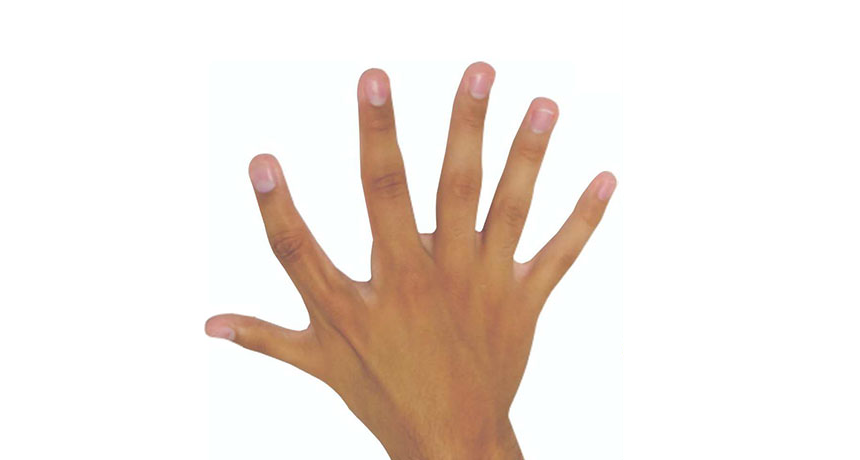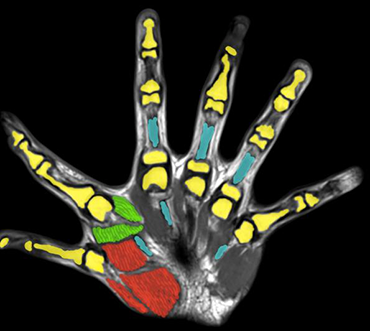A sixth finger can prove extra handy
For one mother and son, it aided the ability to text, type and more

An extra finger can be incredibly handy. Two people born with six fingers per hand can tie their shoes, deftly manage phones and play a complicated video game — all with a single hand. What’s more, their brains had no trouble controlling the more complex movements of their extra digits, a new study finds.
Extra fingers are not that rare. About one or two in every 1,000 babies are born with extra digits. If the extras are just small nubs, they may be surgically removed at birth. But some extra fingers can prove helpful, the new study shows.
Its results also highlight how flexible the human brain can be. That info can guide people who design brain-controlled robotic appendages.
Etienne Burdet is one of those people. He’s a bioengineer at Imperial College London in England. His team worked with a 52-year-old woman and her 17-year-old son. Both were born with six fingers on each hand. Their extra fingers grew between the thumb and index finger. And they resemble thumbs in how they can move.
The researchers studied the anatomy of the subjects’ hands with magnetic resonance imaging, or MRI. It can map body structures. They also looked at activity in the parts of the brain that control the hands. Those scans revealed a dedicated brain system that controls the extra fingers. The sixth digits had their own muscles and tendons. That means they don’t just piggyback on the muscles that move the other fingers, as some doctors had thought.

The scientists described their findings June 3 in Nature Communications.
The brain had no trouble directing the extra fingers, the researchers showed. To Burdet, that suggests someone’s mind would be able to control robotic fingers or limbs. Such appendages would likely place similar demands on the brain, he says. However, it might be harder for a person not born with extra digits.
Living in a world designed for people with five fingers has led the mom and son to adapt in interesting ways, Burdet notes. For instance, eating utensils are too simple for them. “So they constantly change the posture on the utensils and use them in a different way,” he notes. After spending time with the pair, “I slowly felt impaired with my five-fingered hands,” he says.
Still, not everyone with extra digits may show improved dexterity, Burdet says. In some cases, extra fingers may be less well developed.
Science News/YouTube







